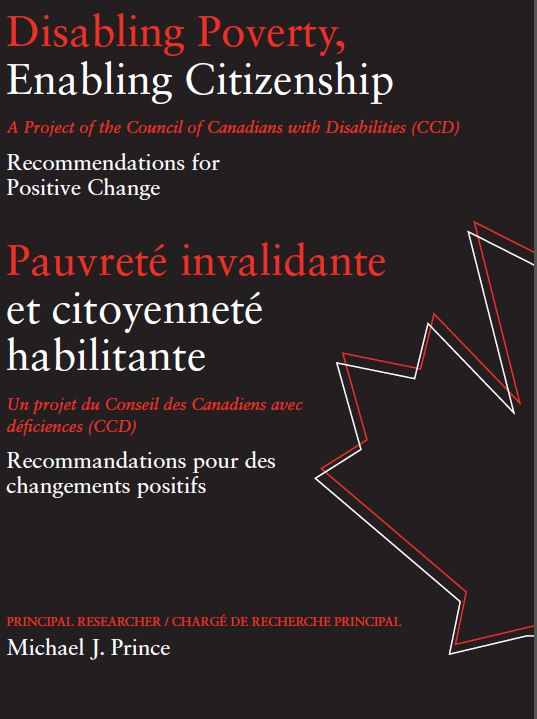Council of Canadians with Disabilities,
Community-University Research Alliances (CURA) Project
 Time Period
Time Period
2008-2014
Jurisdictional Focus
Canada
Key Players:
Council of Canadians with Disabilities (CCD)
Laurie Beachell (National Coordinator)
Michael Prince (Principal Investigator)
Yvonne Peters (Principal Investigator)
Community Partners: Canadian Association for Community Living (CACL), National Network for Mental Health (NNMH), People First of Canada (PFC), National Anti-Poverty Organization (NAPO), Caledon Institute on Social Policy
University Partners (University of Victoria, University of New Brunswick, University of Manatoba, Université du Québéc à Montreal)
Relevant Report(s) Produced:
Disabling Poverty, Enabling Citizenship (2014)
Additional Research Available From the Council of Canadians with Disabilities
Initiative Summary:
In 2008, the Council of Canadians with Disabilities received funding from Canada's Social Sciences and Humanities Research Council (SSHRC) to collaborate with both academic and community agency partners on the Disabling Poverty/Enabling Citizenship initiative. This Community-University Research Alliance (CURA) is designed to bring forward recommendations and plans for alleviating the disproportionate poverty of Canadians with disabilities by examining their demographic information, identifying interactions between both public- and private-sector disability income supports, outlining legal protections for people with disabilities living in poverty, analyzing past poverty alleviation reform proposals, and presenting reform options. Gender analysis is also incorporated into all stages of the research.
Through the Council of Canadians with Disabilities' CURA project, researchers have investigated issues including the income sources of Canadians with disabilities, Québec's anti-poverty legislation, experiences of Canadians with disabilities living in poverty, and the need to consider poverty as a human rights issue.

